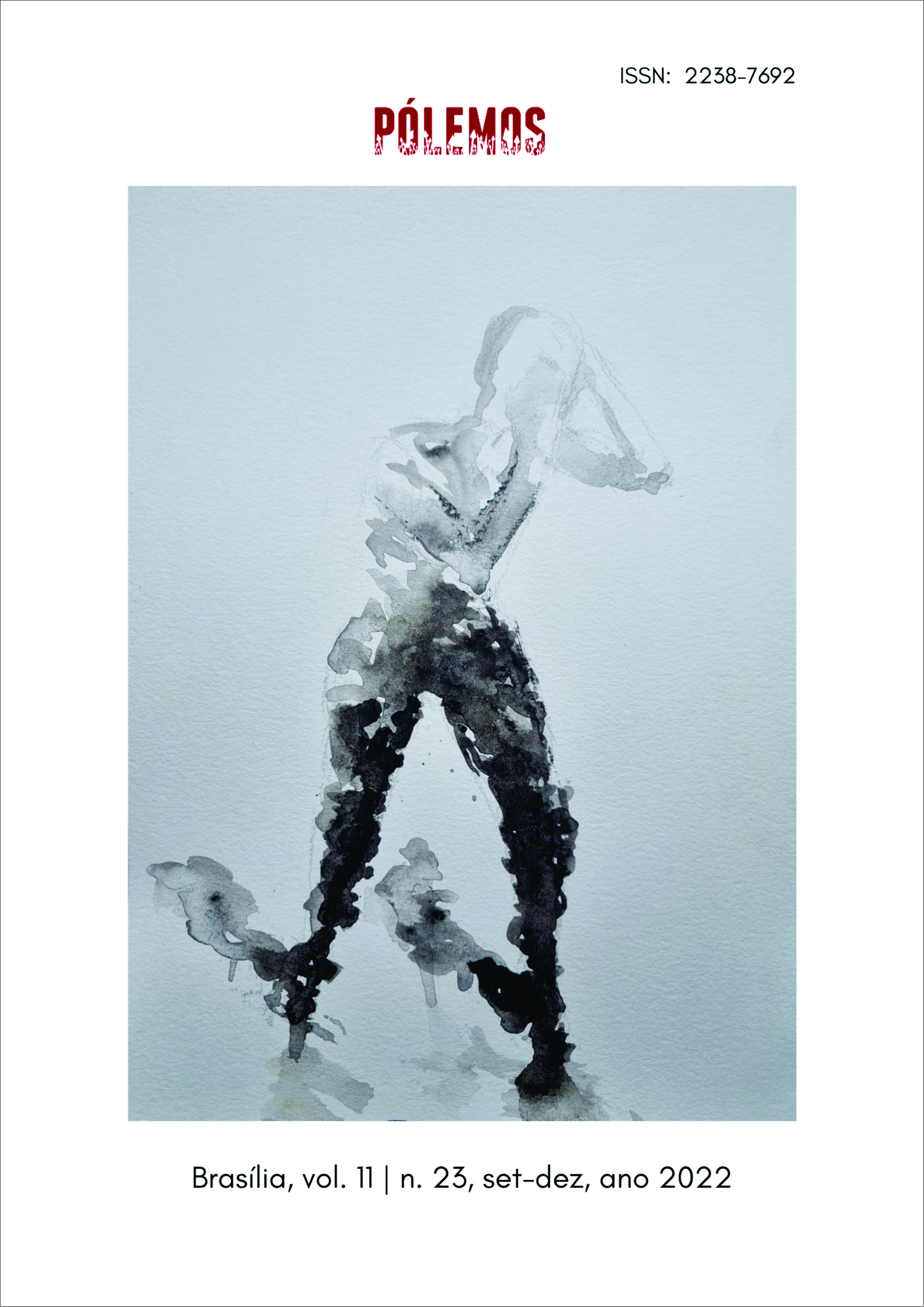THE CONSTITUTION OF ARISTOTELIAN PÁTHOS
DOI:
https://doi.org/10.26512/pl.v11i24.46359Keywords:
Eudaimonia. Páthos. Mesótes. Héxis.Abstract
In the Nicomachean Ethics, Aristotle undertakes a practical reflection on the best life that can be achieved through action. This life consists of acting well and living well, which is confused with the eudaimonic life. Emotions play a major role in this doctrine because they are responsible for the actions of individuals, insofar as they are related to what is pleasant and painful, since individuals tend to act according to pleasure and avoid painful actions. The purpose of this paper is to show how Aristotle explains that our emotions are formed from a cooperation with reason, involving in the beginning of each emotion, an understanding about what it concerns. This explanation by Aristotle preserves the hope of personality correction with a view to the attainment of eudaimonia.
Downloads
References
ARISTÓTELES. De Anima. Apresentação, tradução e notas de Maria Cecília Gomes dos Reis. São Paulo. Editora 34 Ltda, 2006.
ARISTÓTELES. Ética a Nicômacos. Tradução e notas de Luciano Ferreira de Souza. –São Paulo: Martin Claret, 2016.
ARISTÓTELES. Física. Traducción y notas Guillermo R. de Echandía. Madrid: Editorial Gredos, 1995.
ARISTÓTELES. Órganon. Tradução e notas de Pinharanda Gomes. Lisboa: Giumarães Editores. 1986.
ARISTÓTELES. Retórica das paixões. Tradução Isis Borges B. da Fonseca; prefácio Michel Mayer. Säo Paulo: Martins Fontes. 2000.
URSTHOUSE, Rosalind. A doutrina central da mediania. In: Aristóteles: a Ética a Nicômaco. Org. por Richard Kraut. Tradução de Alfredo Storck. Porto Alegre: Artmed, 2009.
LIMA, M. A.. A Retórica em Aristóteles: da orientação das paixões ao aprimoramento da eupraxia. 1 ed. Natal: Editora do IFRN, 2011.
NUSSBAUM, Martha C. A fragilidade da bondade: fortuna e ética na tragédia e na filosofia grega. Tradução Ana Aguiar Cotrim; revisão da tradução Aníbal Mari. – São Paulo: Editora DMF Martins Fontes, 2009.
PELLEGRIN, Pierre. Vocabulário de Aristóteles. Tradução Claudia Berliner; revisão técnica Marcos Ferreira de Paula. – São Paulo: Editora WMF Martins Fontes, 2010.
WOLF, Ursula. A Ética a Nicômaco de Aristóteles. Tradução de Enio Paulo Giachini. São Paulo: Edições Loyola, 2010.
ZINGANO, Marco. [Páthos] - um emaranhamento conceitual?. Marques, E.; Rocha, E.; Levy, L.; Pereira, L. C.; Gleizer, M.. (Org.). Caminhos da Razão: estudos em homenagem a Guido Antônio de Almeida e Raul Ferreira Landim Filho. 1ed. Rio de Janeiro: Nau Editora, 2019, p. 253-281.
ZINGANO, Marco. Estudos de Ética Antiga. São Paulo: Discurso Editorial, 2007.
Eulexis Bailly. Paris: Philippe Verkerk, 2020. Disponível em: https://www.lexilogos.com/grec_ancien_dictionnaire.htm#
Chantraiine. São Francisco: Internet Archive, 2009. Disponível em: https://archive.org/details/Dictionnaire-Etymologique-Grec/page/n3/mode/2up
Downloads
Published
How to Cite
Issue
Section
License
Copyright (c) 2023 PÓLEMOS – Revista de Estudantes de Filosofia da Universidade de Brasília

This work is licensed under a Creative Commons Attribution-NonCommercial-NoDerivatives 4.0 International License.
Todos os trabalhos que forem aceitos para publicação, após o devido processo avaliativo, serão publicados sob uma licença Creative Commons, na modalidade Attribution-NonCommercial-NoDerivatives 4.0 International Public License (CC BY-NC-ND 4.0). Esta licença permite que qualquer pessoa copie e distribua a obra total e derivadas criadas a partir dela, desde que seja dado crédito (atribuição) ao autor / Ã autora / aos autores / às autoras.


